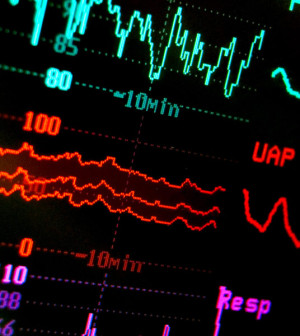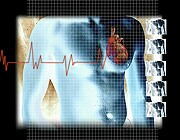- Could Your Grocery Store Meat Be Causing Recurring UTIs?
- Are You Making This Expensive Thermostat Error This Winter?
- Recognizing the Signs of Hypothyroidism
- 10 Strategies to Overcome Insomnia
- Could Artificial Sweeteners Be Aging the Brain Faster?
- Techniques for Soothing Your Nervous System
- Does the Water in Your House Smell Funny? Here’s Why
- Can a Daily Dose of Apple Cider Vinegar Actually Aid Weight Loss?
- 6 Health Beverages That Can Actually Spike Your Blood Sugar
- Treatment Options for Social Anxiety Disorder
Too Many Heart Scans May Pose Radiation Risks, Cardiologists Say


Doctors need to make sure patients understand the radiation-related risks of heart imaging tests before sending them for such procedures, a new American Heart Association scientific statement says.
“With technological improvements, medical imaging has become an increasingly vital tool in diagnosing and treating patients with heart disease, but the rising use of the tests has led to increasing radiation exposure over the past two decades,” Dr. Reza Fazel, chair of the statement writing committee and a cardiologist at Beth Israel Deaconess Medical Center in Boston, said in an association news release.
“Heart imaging procedures account for almost 40 percent of the radiation exposure from medical imaging,” Fazel said.
Before referring a patient for a heart imaging test, the cardiologists say, doctors need to address questions such as:
- How will the test help diagnose or treat the heart problem?
- Are there alternatives that don’t use radiation?
- What are the levels of radiation exposure, how will it affect the risk of cancer later in life and how does that compare to the risk from other common activities?
“In general, the radiation-related risk of any imaging test to an individual patient is very small and, when the test is clinically appropriate, the benefits of the test typically far outweigh any potential risks,” Fazel said.
Doctors who order heart imaging tests need to understand when each type of test is appropriate, the typical average radiation dose and the potential risks, according to the statement published Sept. 29 in the journal Circulation.
“Radiation-related risk is one of the factors that should be considered in the decision to use cardiovascular imaging with ionizing radiation, particularly in younger patients in whom the potential risk of radiation exposure is thought to be higher,” Fazel added.
When deciding on a heart imaging test, doctors also need to consider the test’s diagnostic accuracy, availability, cost, convenience and other potential risks.
Widely used types of heart imaging tests that use radiation include nuclear stress tests, cardiac CT scans, and fluoroscopy. Fluoroscopy is a technique that uses X-rays to create “real-time” or moving images of the body. Ultrasound and MRI tests do not expose patients to radiation.
More information
The U.S. National Library of Medicine has more about medical imaging tests.
Source: HealthDay
Copyright © 2026 HealthDay. All rights reserved.










